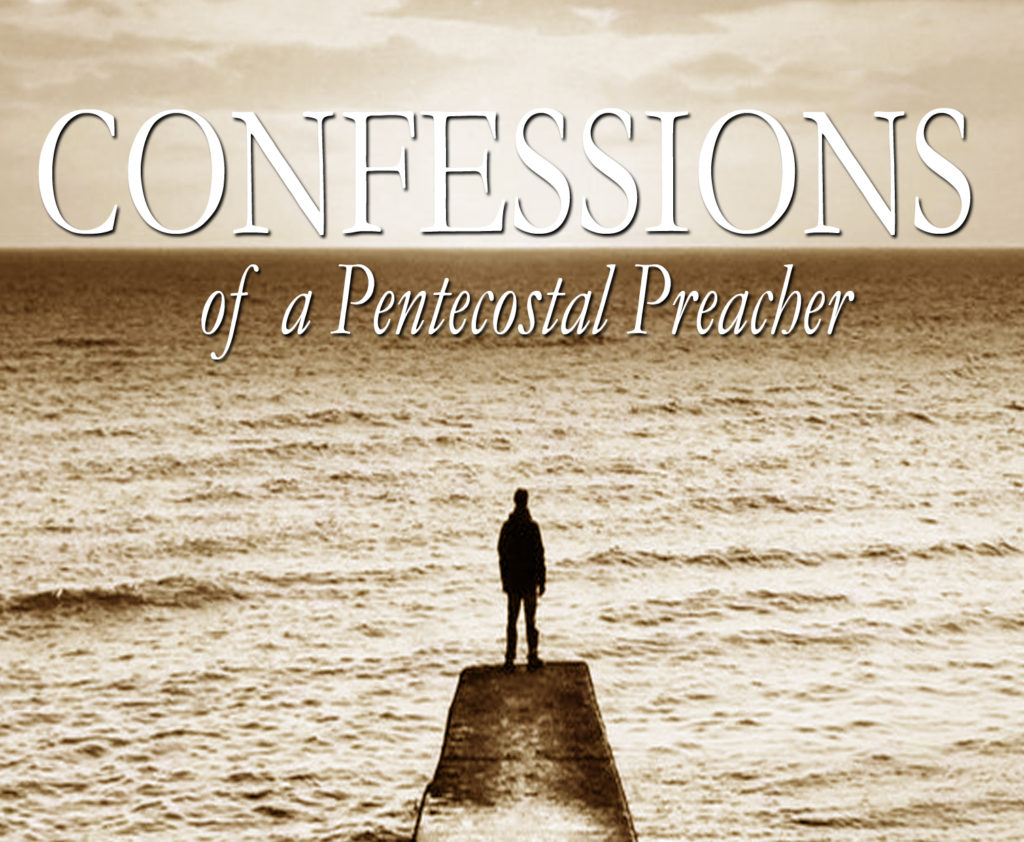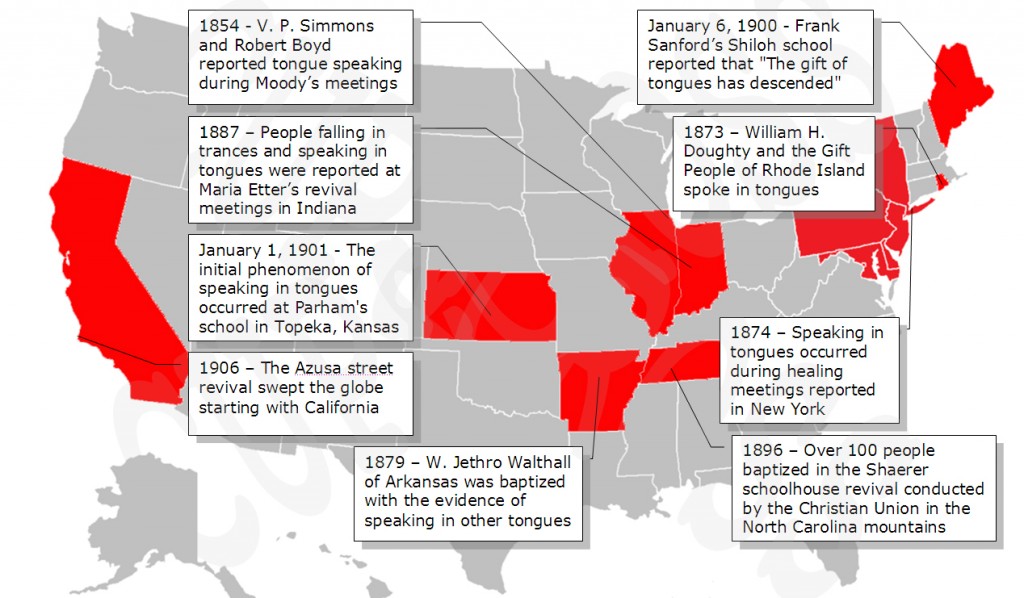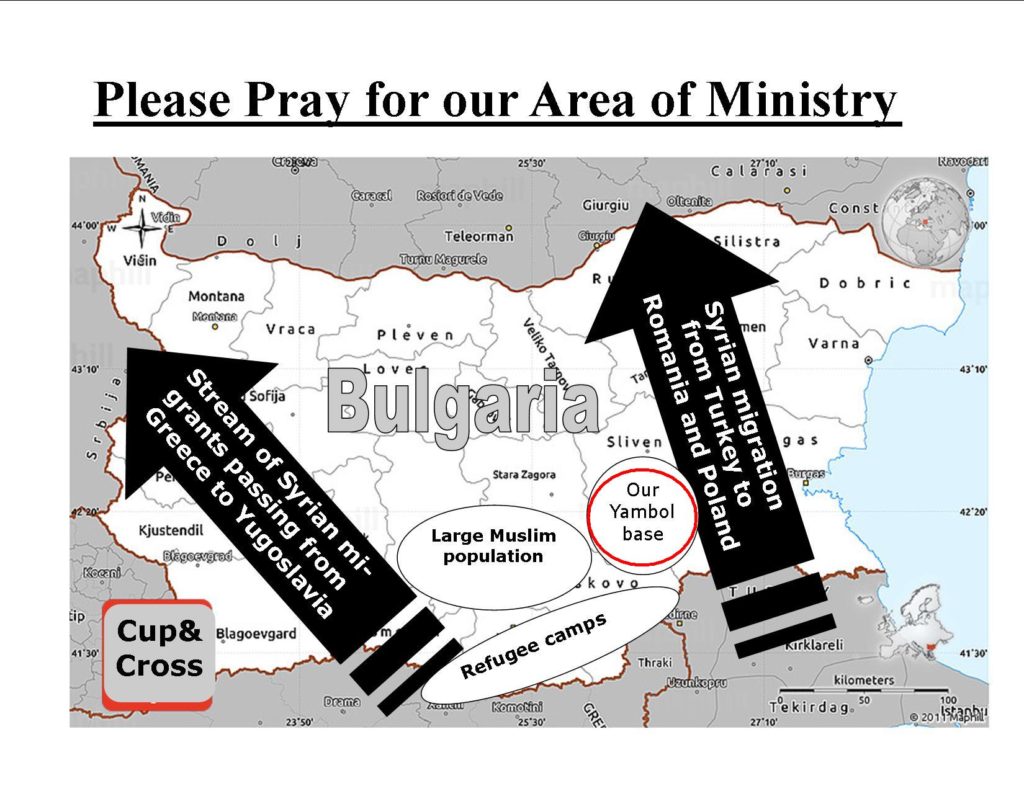Trends and Issues Affecting the Next American Spirituality
 Three Trends and Three Issues Affecting Asian Missions” by David Barrett bring focus on obvious antipode of missionary need in the Western hemisphere today. The Macedonian Call to 3.7 billion Asian people with some 9% Christians is no small issue in global missions. At the same time, America becoming the 3rd largest mission field in the world is the obvious missions gap in the Western hemisphere. The parallels in post-modernity are many.
Three Trends and Three Issues Affecting Asian Missions” by David Barrett bring focus on obvious antipode of missionary need in the Western hemisphere today. The Macedonian Call to 3.7 billion Asian people with some 9% Christians is no small issue in global missions. At the same time, America becoming the 3rd largest mission field in the world is the obvious missions gap in the Western hemisphere. The parallels in post-modernity are many.
About 20 years ago, a book called “The Next American Spirituality” summarized the culture of today’s American spirituality and its relation to the apostolic church. The main question is, “What would a theology of the church look like that took seriously the fact that North America is now itself a mission field?”
To answer the question, Gallup and Jones examined how America does Biblical spirituality, using the gathered data to analyze its shift and direction. According to their survey, the marks of the next American spirituality were going to be (in short):
1. Bull-market church growth
2. Self-centered religion of me and thee
3. Hunger for experience – any experience
4. Search of roots amid the relativism
5. Quest for community resulting in self-belongingness and self-realization
In our current context of ministry two decades later, all of the above signs are evident and true. This is due on hand to the constant shift in the cultural paradigm, as well as the obvious shift in the identity and practices of the Christian church in the postmodern context. It almost seems like instead of being the model, the church is following a model, which not only changes the churches identity but interferes with its original evangelistic goal and global mission.
Bulgarian Chaplaincy Association and Master of Chaplaincy Program Ministry 2020 Priority Review
 In the midst of the 2020 pandemic, the Bulgarian Chaplaincy Association was able to continue in active field ministry as well as its Master of Chaplaincy Program in affiliation with New Bulgarian University. Another doctoral graduate from the chaplain’s program graduated in 2020 with special focus of ministry in the Eastern part of Bulgaria. The Association has not completed its task yet, namely, legalizing chaplaincy within the Bulgarian armed forces, but major milestones have been accomplished. Our 2006 proposal submitted to NATO’s Manfred Wörner Foundation is being implemented as foundational to the doctrine and direction of the Association, being now used by other fields and states as well.
In the midst of the 2020 pandemic, the Bulgarian Chaplaincy Association was able to continue in active field ministry as well as its Master of Chaplaincy Program in affiliation with New Bulgarian University. Another doctoral graduate from the chaplain’s program graduated in 2020 with special focus of ministry in the Eastern part of Bulgaria. The Association has not completed its task yet, namely, legalizing chaplaincy within the Bulgarian armed forces, but major milestones have been accomplished. Our 2006 proposal submitted to NATO’s Manfred Wörner Foundation is being implemented as foundational to the doctrine and direction of the Association, being now used by other fields and states as well.
As prisoners in Bulgaria were not generally released during the Pandemic, prison chaplaincy continued through the Sofia region office led by one of our students from the Masters’ Program.
Hospital chaplaincy has remained a challenge as many hospitals, especially in mid-Bulgaria, struggled to provide adequate healthcare during the pandemic crises.
International chaplaincy among Bulgarian migrants have continued as allowed by shutdown orders in various countries in the European Union. On several occasions large communities of migrant workers were forced by the economic challenges to return to Bulgaria, which has presented additional opportunities for chaplaincy ministry.
Institutional chaplaincy has been the weakest point as in the past decade, as interweaving religion and business in the Bulgarian context of ministry has remained a strong test for the endurance of chaplaincy. However, the corporate ecosystem in Bulgaria is progressively changing as foreign investors are continuing to establish regional offices and labor opportunities in the country.
Haskovo, Harmanli and the Strandja region toward the Turkish border south of Yambol have been a focal point of chaplaincy among foreign migrants residing in Bulgaria. We have already established relationship with para-church organizations that work successfully among Muslim migrants in the Scandinavian countries. Their experience and training within the Bulgarian context of ministry has been indispensable.
Finally, social involvement through community chaplaincy has been developing well in the past several years, especially in major project areas like the second largest Bulgarian city of Plovdiv, the region of South Bulgaria, along the Black Sea especially in Bulgaria’s largest sea port at Varna, and along the Danube River including the port cities of Silistra, Rousse, Svishtov and all the way to Vidin.
I was called … Celebrating 30 Years of Global Ministry
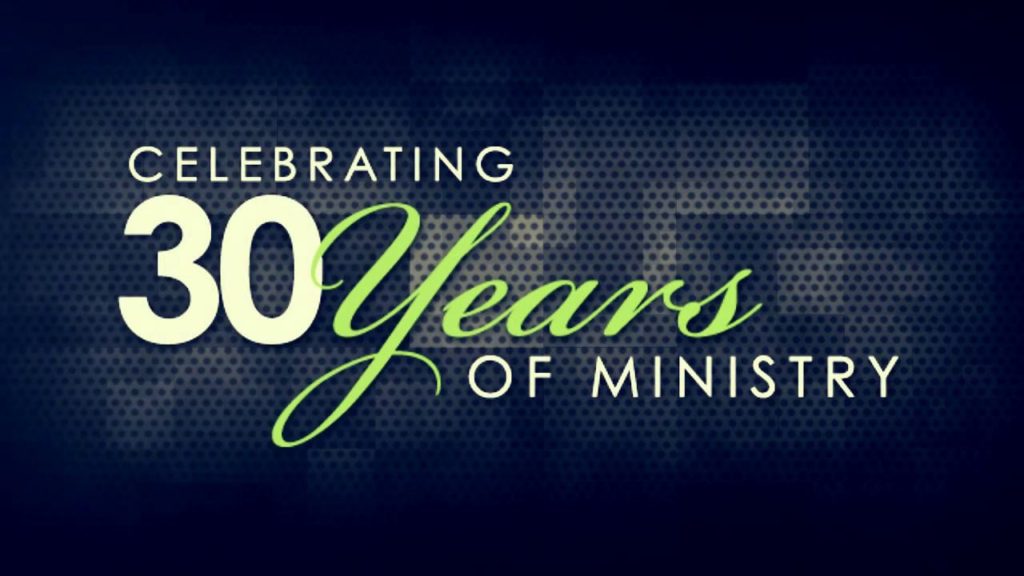
During the month of September, our ministry is celebrating 30 years in Global Harvest. I was saved in my hometown of Yambol Bulgaria on August 9, 1990 and baptized with the Holy Spirit seven days later. In two weeks time, God called me to preach and I preached my first sermon one Friday night in September at the Church of God in the mountain town of Pravetz, Bulgaria where a small group of Pentecostal believers had kept the faith during the long years of the Communist Regime. At that time, Pravetz was known as a stronghold of Communism where the Communist president who ruled Bulgaria for 36 years was born. Many, including school officials, did not receive our faith and openly tried to suppress its expression. All night prayer meetings were a weekly event, and chain fasting almost never stopped. The Bulgarian Church of God was still underground.
Only 14 were present at the meeting as I preached from Genesis chapter 14. Little I knew that just a few short months later, the youth group of the church would count over 100 strong and growing, and with the Berlin Wall now fallen revival was on the way. That night in Pravetz Bulgaria I just preached a sermon from the Word. That same Word, which God still claims cannot return void. For Revival must go on …
Now 30 years later, the time to tell the story has finally come!
This book should have been published seven years ago in 2013. Its original subtitle was going to read “7 Years in Bulgaria.” Instead, it took seven years to finish it with all documents, research archives and new cases. Now, it is finally here and it finally reads like a story – not just choppy interviews, deposition documented testimonies or court records, but a story of struggle, strength and solitude. A story of life and a story of us.
1995-96 The establishing of the first Bulgarian Church of God in Chicago and its first split
2000-01 The contracted building of the ministry center for the Central Church of God in Sofia
2002-03 The church split in Southaven and what followed next
2005-06 The post-communist split of the Bulgarian Church of God and consecutive sub-denominations
2010-13 The social media network that cost us millions (of souls)
2016 The vote that forced to kill a church
2019-20 The sale of the ministry center for the Central Church of God in Bulgaria
READ: CONFESSIONS of a Pentecostal Preacher
Digital Discipleship at Lee University
Digital Discipleship is a practical training manual for the use of collaborative online tools, digital storytelling, creative websites, and mobile networking in the ministry of the Church. This course is intended to provide students with a hands-on toolbox for extending their present ministry to the internet world with the intent of soul-saving and discipleship. There are no pre-requisites to this course, and it is open for enrollment to current students or new applicants. This 3-credit-hour, fully online, asynchronous course will take place June 23 to Aug. 10. To register, visit applytolee.com and use the code DIGITAL (case-sensitive) to waive the $25 application fee.
Lee University 2020 Church of God Scholarship Program
Receive a Lee Online student scholarship of $1,000, disbursed over the academic year – Fall, Spring, and Summer. Continuous enrollment is required. Details are important, so here are some of the finer points of this special scholarship offer:
- The scholarship is open to new applicants starting a program in August 2020.
- The $1,000 will be applied evenly over the 2020-2021 academic year (Fall, Spring, Summer), so make sure you stay enrolled to reap the full reward.
- The award can be used towards Lee Online certificate, undergraduate or graduate programs.
- Enroll full-time (two classes per session) or part-time (one class per session).
- It can be combined with the ministry or military/first responders program tuition discounts (but not with other scholarships).
Make sure to use SPIRIT (case-sensitive) as your discount code when you applytolee.com so that we can reserve your scholarship funds.
Ensure Eligibility
Available to newly enrolled Lee Online undergraduate, graduate, or certificate students with a start date of August 18, 2020. May not be combined with any other offers or scholarships.
Register for your scholarship today here: https://leeuniversity.edu/cog/
Pentecost Sunday Full Gospel as Preached by the Early Pentecostals
I keep on repeating this through the years, but the need for the constant repetition comes from the simple fact that among new doctrinal teachings and Hillsong style of worship the True Message of Pentecost remains long forgotten
- Salvation – That a man must be saved while the hour of grace is still upon us has been that teaching of every protestant evangelical since the Reformation. Why people attend church all their lives without getting saved is beyond me. But I do know that the commitment of the CHURCH to REVIVAL brings people to SALVATION.
- Sanctification – The Wesleyan teaching of sanctification resolves that the sanctification of the believer is definite. This means that though it may progress and evolve through time, as the believer gets closer to God in his/her daily walk, sanctification must become ENTIRE i.e. allowing NO sin to abide in the believer’s body, soul or spirit. Without ENTIRE sanctification resulting in holiness, no one will ever see God (Heb. 12:14).
- Holy Ghost Baptism – The doctrine of the Baptism with the Holy Ghost means that when baptized we speak in one tongue with God because we are ONE with His Spirit. Not just in us or upon us, but that we are IN the Spirit as John was on the day of Revelation.
- Healing in the Atonement of Christ belongs to every believer. This means you, your family and your church members. The healing provided in the Atonement is for ALL believers – no exception. It is also for ALL sickness, disease, viruses, infections, tumors and cancers. But that it belongs to does not yet mean that it has been received by the believer. For this reason, God does not stop healing neither in this age nor through eternity, as the leaves of the Tree of Life in the New Jerusalem are still and forever for the healing (Rev. 22:2)
- The Second Coming of Christ for Pentecostals is not simply pre-millennial, but also pre-Tribulation. There have been MANY teachings on the End Times until today. Post-millennials claim we live in the Millennium even now anticipating the return of the Lord; a-millennials that there will be no Millennium at all. Post-tribulationists expect his return at the end of the Tribulation, mid-post-tribulationists in the middle. But in Pentecost, we expect Christ to return before the Tribulation that we may be saved from the hour of trial (Rev. 3:10) and before the Millennium so we may reign with Him 1,000 years. Any other message is no message of hope for the Church of the Living God.
Speaking in Tongues in America Prior to the Azusa Street Revival of 1906
April, 1906 – The Azusa street revival swept the globe starting with California
January 1, 1901– The initial phenomenon of speaking in tongues occurred at Parham’s school in Topeka, Kansas
January 6, 1900 – Frank Sanford’s Shiloh school reported that “The gift of tongues has descended”
1896 – Over 100 people baptized in the Shaerer schoolhouse revival conducted by the Christian Union in the North Carolina mountains
1887 – People falling in trances and speaking in tongues were reported at Maria Etter’s revival meetings in Indiana
1874 – Speaking in tongues occurred during healing meetings reported in New York
1873 – William H. Doughty and the Gift People of Rhode Island spoke in tongues
1854 – V. P. Simmons and Robert Boyd reported tongue speaking during Moody’s meetings
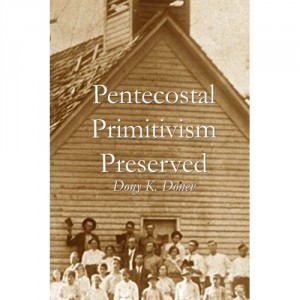
FURTHER READING:
Church of God (Cleveland, TN)
- Alive, alive! (A personal testimony)
- Church of God Primitivism
- Bulgarian Church of God
- J.W. Buckalew
- Why revival came? by Dr. Charles Conn
Azusa Street Revival of 1906
- Lucy F. Farrow: The Forgotten Apostle of Azusa
- The FORGOTTEN ROOTS OF THE AZUSA STREET REVIVAL
- Azusa Street’s Apostolic Faith Renewed
- Azusa Street Sermons
- Pentecostal Primitivism Preserved
Prior to Azusa Street Revival of 1906
- First person to speak in tongues in the Assemblies of God was William Jethro Walthall of the Holiness Baptist Churches of Southwestern Arkansas
- The Work of the Spirit in Rhode Island (1874-75)
- Speaking in Tongues in America Prior to the Azusa Street Revival
- WAR ON THE SAINTS: Revival Dawn and the Baptism of the Spirit
- How Jezebel Killed One of the Greatest Revivals Ever
States Consider Religious Services Essential
DeSantis quietly signs second order overruling all local coronavirus orders, including church bans
Gov. Ron DeSantis quietly signed a second order Wednesday evening that forces local governments to follow the state’s shutdown order to the letter, opening the door to an immediate resumption of activities that cities and counties had banned. But at a news conference Thursday, DeSantis claimed his new order merely “set a floor, and you can’t go below that,” adding that if local governments wanted to close a running trail, for example, they could do so.
Of the 39 states that have implemented stay at home orders, 12 make exceptions for religious gatherings.
A revival held at a church resulted in an outbreak of the virus in Hopkins County, Kentucky, and the governor reminded the public Wednesday that those exercising the exemptions still hold a responsibility to take precautions to the virus. “The ramifications when we don’t follow this, end up being widespread and they hurt people that didn’t make that choice,” said Gov. Andy Beshear. “Let’s make sure that we’re responsible in the choices we make to protect those around us.” Here’s a list of states that still allow some form of religious gatherings during the stay at home orders:
Arizona
Religious services are exempt as an essential activity because worship is protected under the first amendment of the Constitution. However, the exemption specifies that the services are exempt as long as they “provides appropriate physical distancing to the extent feasible.”
Colorado
The state allows houses of worship to stay open as long as they are using an electronic platform or are practicing social distancing. Services from religious leaders are also allowed for individuals in crisis or for end-of-life services.
Delaware
Along with social advocacy, business, professional, labor and political organizations, religious organizations are exempt.
Florida
The state recognizes attending a church, synagogue or house of worship as an essential activity along with caring for loved ones, pets and recreational activities that comply with social guidelines.
Kentucky
Kentucky makes an exemption for life-sustaining business and religious organizations that provide “food, shelter, social services, and other necessities of life” for people disadvantaged or in need because of the pandemic. However, the organizations must social distance as much as possible, including ending in-person retail.
Michigan
Michigan also makes exceptions for operations, religious and secular, that provide necessities for those in need. The state also does not subject places of worship to penalties for breaking orders when they are used for religious worship.
New Mexico
The state does not include congregations in a church, synagogue, mosque or other place of worship in the definition of “mass gatherings” that are barred.
North Carolina
Traveling to and from a place of worship is exempt from the executive order as “leaving the home and travel for essential activities.”
Pennsylvania
Religious institutions are exempt along with lifesaving and sustaining operations, health care, child care for employees of life-sustaining businesses, news media, law enforcement, emergency medical fire fighters and the federal government.
Texas
Religious services, if they cannot be conducted at home or remotely, can be conducted as long as they are consistent with guidelines from the federal government and Centers for Disease Control and Prevention.
West Virginia
Attending a place of worship is considered an essential activity in the state along with going to the grocery store or gas station, picking up a prescription or necessary medical care, checking on a relative, getting exercise, and working essential jobs.
Wisconsin
Religious facilities, groups and gatherings must have fewer than 10 people in a room and must adhere to social distancing requirements.
The nationwide move to close churches, synagogues and mosques as part of the broader effort to slow the spread of the coronavirus is meeting some new resistance.
In a new “safer-at-home” order banning many activities, Florida Governor Ron DeSantis Wednesday said “attending religious services” is among the “essential” activities that would be permitted. The order came two days after the arrest of a Tampa pastor, Rodney Howard-Browne, who held worship services in defiance of a local ban on large gatherings. That ban is now effectively overruled.
Governors in several other states have also designated houses of worship as providing essential services and thus exempt from shutdown orders. Those provisions have come in the wake of criticism, largely from conservatives, that any order to close churches constitutes a violation of the principle of religious freedom.
Liberty Counsel, a legal advocacy group that represents evangelical Christian interests, agreed to represent Howard-Browne and harshly criticized the move to force churches to close.
“Why is it the church can’t meet when it has a constitutional right to do so and has undertaken extraordinary efforts to protect people, but commercial businesses can meet with no constitutional protections and many do nothing to protect anyone?” the organization said in a press release.
A coalition of Catholic leaders on Wednesday similarly issued an open letter calling on authorities to recognize religious services as essential and pleading for the allowance of “some form of a public mass,” especially at Easter.
Many churches and other houses of worship have been forced to close in response to government bans on public gatherings of more than ten people. It is not yet clear whether the broadening move to include religious institutions as essential will allow churches, synagogues, and mosques to reopen.
In several states that do not explicitly mandate church closures, religious leaders are strongly recommended to suspend services.
An executive order issued Tuesday by Texas Governor Greg Abbott explicitly designated religious worship as essential and thus exempt from a mandate that “every person” in the state “minimize social gatherings” and “in-person contact,” and it overruled the local bans on large gatherings that had forced the closure of many Texas churches.
Legal guidance issued in connection with Abbott’s executive order, however, advised that houses of worship “must, whenever possible,” conduct their activities remotely.
Statement of Dr. Rodney Howard-Browne
Apr 2, 2020
A statement was also made that we ignored repeated warnings. This is patently untrue! On Thursday, Sheriff Chronister spoke to some of our staff by speaker phone. I was also present. After we told Sheriff Chronister that we were enforcing six-foot social distancing, had installed over $100,000 of high-grade hospital air purifiers, and were taking other actions to protect the health of anyone who attended, he said the church could operate on Sunday, and that he had no intention to close the church or arrest anyone. The order then became effective on Friday night at 10:00 p.m. On Saturday, we prepared our building, and our staff and ushers, to take all possible, reasonable precautions. On Sunday, we held our usual meeting with the precautions (listed below) in place. At NO time, before or during the service, did we receive any “warnings” from the Sheriff or any other official.
The March 27 “Safer-at-Home” order contains, in paragraph 3, 42 sub-paragraphs of exceptions, including “religious personnel.” Following this long list of exceptions, in paragraph 5, the order adds another huge exception: “Businesses which are not described in paragraph 3, and are able to maintain the required physical distancing (6 feet) may operate.” (emphasis added). In other words, any business that is not in the long list of specific exceptions, is also exempted if it is able to comply with the six-feet separation between people. In such case, there is no limit on the number of people who can be present.
The church took extra precautions to more than comply with the Executive Order, which included the following:
- Persons who were concerned for their health or had physical symptoms of any kind, were encouraged to stay home;
- Every person who entered the church received hand sanitizer;
- All the staff wore gloves;
- The church enforced the six-foot distance between family groups in the auditorium as well as in the overflow rooms;
- In the farmer’s market and coffee shop in the lobby, the six-foot distance was enforced with the floor specifically marked;
- The church spent over $100,000 on a hospital grade purification system set up throughout the church that provide continuous infectious microbial reduction (CIMR) that is rated to kill microbes, including those in the Coronavirus family.
The church sanctuary has moveable chairs. Chairs were removed from the sanctuary so that the remaining chairs were separated by six feet. Any small group that may have been closer than six feet were family members that came to the church together. This six-foot separation was maintained throughout the church.
The church took every precaution to protect the people who attended. In fact, the kinds of precautions the church undertook cannot be found existing in many commercial business establishments that freely operate in Hillsborough County under this Executive Order.
The Executive Order on its face, and as applied, discriminates against religious services and gatherings, despite the fact that the First Amendment provides express protections to houses of worship and assembly. There is no similar constitutional protection for commercial businesses; yet houses of worship and religious gatherings are singled out for discrimination. The State of Florida’s Executive Order exempts churches, as does the Orange County Executive Order, and many other county orders. Yesterday, Gov. Ron DeSantis issued a new Executive Order that states attending “religious services conducted in churches, synagogues and houses of worship” are “Essential Activities.” Surely, Hillsborough County could follow their lead and not violate the Constitution. There are other means available to achieve the interest that we all share to protect human life.
The word of my arrest has traveled around the world. While I have received vulgar verbal abuse and death threats from people who do not know me and are not familiar with the facts, I have also received many words of support and prayer. Many people are deeply concerned that in America a pastor would be arrested.
As my wife and I prayed about what we should do this weekend, we have decided to close the church for this upcoming Sunday service, for the protection of our people in this antagonistic climate, in large part created by media hype and misrepresentations, which have undoubtedly been exacerbated by Sheriff Chronister’s exaggerated and outright false accounts of the situation. We do not make this decision lightly. This is Palm Sunday. We are entering the time of year that is most important to Christians around the world in which we remember and celebrate the death, burial, and resurrection of our Lord and Savior, Jesus Christ.
We did not hold church to defy any order; nor did we hold church to send a political message. We did not hold church for self-promotion or financial motives, as some have wrongly accused. We held church because it is our mission to save souls and help people, and because we in good faith did everything possible to comply with the Executive Order. Indeed, Sheriff Chronister told us last Thursday that we could hold church.
At this point, we believe it is prudent to take a pause by not opening the church doors this Sunday. This will allow an opportunity for people to take a deep breath and calm down. No matter your view on this matter, I encourage you to take a step back and reconsider the options. I believe we can better balance the health and safety of our community without throwing out the Constitution.
At this time, I have not made any decision about Easter Sunday or services thereafter. Adonica and I are praying and seeking the Lord for wisdom. I will say, however, that the church cannot be closed indefinitely. We believe that there are less restrictive means available to balance all the various interests.
My attorneys at Liberty Counsel will vigorously defend me against this unlawful arrest. I have also authorized my attorneys at Liberty Counsel to file a federal challenge to the Hillsborough County Executive Order. As I said earlier, this order violates the First Amendment and is unconstitutional. I have authorized this constitutional challenge for several reasons.
First, I have already been arrested once on trumped-up charges. I am a law-abiding citizen, who respects law enforcement. Like any normal law-abiding person, I would prefer not to be arrested again. A second arrest could escalate to a higher criminal penalty, or even a felony. No one wants to face criminal charges. My attorneys at Liberty Counsel are representing me on the criminal case, which we will move to dismiss.
Second, because of the publicity, the vitriol and death threats that have been directed at us and the church, I feel compelled by these threats to not meet this upcoming Sunday for the protection of our pastors, staff, and congregation. Also, I love my pastoral staff at The River, and they love us and are in agreement with our stance to obey the Word of God and also to stand up for our constitutional rights. If the church holds service this coming Sunday and the Sheriff chooses to arrest me again under this unconstitutional Executive Order, he will probably have to arrest all of our pastors for preaching in my place. Personally, I do not want to put my pastoral staff in a position of having to choose between criminal arrest or carrying out our God-given mission to worship together and lead people to Jesus.
Third, The River Church provides many ministries more than services where we physically gather together to worship. We have various training schools, and we also provide food and clothing to people in need. The Farmer’s Market and the weekly food boxes we provide are greatly needed at this time to help needy and hurting families. These ministries need to continue to operate to help people. We have many inner-city people who do not have the luxury of watching church online at home. We feel obligated to continue to serve them in person and to make sure we continue to provide groceries to them every week. People in our community need help more than ever in this time of crisis, and the church is where many of them turn for spiritual and material help. We need to be able to minister, without unreasonably restrictive measures, to their spiritual and material needs. Church is a body of believers that cannot be substituted online, especially for people who do not have access to the internet, or their internet is too slow to watch video. Our church helps hurting people and those in need, both spiritually and physically. There is no substitute for meeting together to help one another. This can be done while also protecting the health and welfare of those who attend.
No one wants to face arrest for a criminal charge just for exercising a constitutional right. The threat of arrest, and worse, actual arrest, operates as a significant chill to the exercise of constitutional rights. No one should have to choose between the two. Even in times of crisis, the courts are open to protect our constitutional rights. We hope and trust that the authorities in this case would re-consider their actions and choose to uphold the Constitution, for all of our sakes, basing their decisions on actual facts and correctly applying any and all of the law, rather than succumbing to pressure from certain antagonistic media.
May God grant us wisdom and blessings as we approach this sacred time of Palm Sunday and Easter.
Police surveillance of phone and internet now allowed under new pandemic law in Bulgaria
Police surveillance of phone and internet now allowed under new pandemic law in Bulgaria
Those of you that are receiving our monthly printed report, already know of several proceedings in Eastern Europe and beyond as following. The new Bill on Religions voted in Bulgaria 2019, allows only “registered” ministers to minister in their respective denominations. The Social Service Act (Jan-Jun, 2020) allows social services to act upon an anonymous complaint to cease children and put them in a foster-home for up to 30-days until the legal parent is proven innocent in court. But none of these matches this current development…
As of today (March 25, 2020) under the current COVID-19 quarantine, the newly voted emergency law allows for the authorities to monitor telephone and internet activities. Data obtained from internet or telephone monitoring will be stored for six months, not twelve as had been previously provided. There will be judicial control over the requests for extension of the period for data storage, but no judge or court order is needed for obtaining of the initial phone or internet records.
The good news?
They tell us this is just a temporary measure until the virus goes away.
The rest is yet to come…
The Legacy of Dr. Nicholas Nikolov and the Bulgarian Pentecostal Union
Dr. Nicholas Nikolov passed to Glory on November 6, 1964. After his death, his wife Martha visited Bulgaria twice in 1976 and 1978, the second time for the 50th anniversary of the Pentecostal Union there where their legacy is strongly remembered to this day.
 The organizational talent of Nicholas Nikolov applied with the Pentecostal movement in Bulgaria shaped the history and set a course for the next century. A study on his role and leadership cannot be completed without pointing to the key factors of his ministerial and organizational success despite the divisions present in the Union.
The organizational talent of Nicholas Nikolov applied with the Pentecostal movement in Bulgaria shaped the history and set a course for the next century. A study on his role and leadership cannot be completed without pointing to the key factors of his ministerial and organizational success despite the divisions present in the Union.
After reviewing Nikolov’s work in Bulgaria, it is becoming clear that it was not the cause for a split among Bulgarian Pentecostals in 1928 as often held. The official registration of the new organization simply confirmed a deepening division that had began with the very start of the movement. More important for us today are the factors that helped Nikolov establish, grow and ensure the future of the Pentecostal organization, while many older and more experienced Bulgarian leaders failed and lost their rightful place in history.
Firstly, what other nucleases within early Bulgarian Pentecostalism lacked in comparison with Nikolov’s Union, was the strong support from abroad (educational, financial and otherwise). It proved indispensable in the Bulgarian context of ministry shaped by deep economic crises and spiritual hunger after WWI. Nikolov found way to implement this advantage effectively in areas where the few before him did not succeed.
Based on his strong relationship with Assemblies of God headquarters in Springfield came the clear articulation of doctrinal understanding expressed in a written statement of faith and praxis. In all fairness, neither faith nor praxis borrowed from the American Assemblies of God fit perfectly the primitive Pentecostalism of Bulgaria in 1928. But as the Union grew into a nationwide organization, more useful applications of organized life were replicated even after Nikolov had left Bulgaria for good.
Then comes the very strong and effective educational and discipleship vision for denominational growth (also borrowed from the American Assemblies of God). Other Pentecostal groups in Bulgaria were too formed around strong leaders, but as most of them remained in leadership for life their spiritual strength and vision naturally weekend. While the work of the Spirit and the practice of gifts were central among them, any formal education or even basic training in practical ministry and organizational leadership were disregarded as worldly having no place in the Church of God. With this mentality prevalent, many Pentecostal groups did not survive after the passing of their first generation of leaders and disappeared from history – either assimilated by the Pentecostal Union or lost forever.
In contrast, Nikolov gave special use of strategic organizational structure that aided the work of the Spirit and empowered the Pentecostal churches. He also found ways to invest in the development of trained leaders able to build and lead the Union until his initial vision was fulfilled. In the process, some congregations did loose spirituality while gaining more structure and training. But overall, a healthy balance was reached ensuring a growing and spiritual Pentecostal denomination.
Lastly, the decision to comply with government legislation opened doors to cooperate with other Protestants organizations on a national level. This decision brought constant tensions that had to be carefully weighed. Siding with churches of the Bulgarian Evangelical Alliance, many of which subscribed to liberal theology, was seen by the older believers as compromising of the Pentecostal faith. Yet, it gave the young Pentecostal movement much needed credibility.
In a similar matter the government registration, provided a nationwide representation of Pentecostals in religious life and opened doors for renting auditoriums, building sanctuaries and creating a national network of self-sustained churches. Some older Pentecostals still saw this as compromising with the world and an unforgivable sin. Especially when the Communist Regime took over Bulgaria in 1944, most leading Protestant pastors were sentenced to life in prison and their place in the pulpit was filled by government paid agents, who infiltrated the decision making body of the Union and enforced government mandate over the churches.
But it also helped the Union churches survive the Regime and be among the few allowed to have regular meetings and services making them the largest evangelical group in Bulgaria today. Nikolov was right with his decision that a small band of organized Pentecostals was much stronger than any other divided majority. And that empowering Spirit-filled communities with organizational structure and leadership mandate can earn their rightful place in history.
Virtual Real Estate for the Kingdom Conference
Cupandcross.com launched in the fall of 1999. Our first public letter went out for Thanksgiving exactly 20 years ago and snice then has reached thousands of readers, partners and friends each week.
Since these humble beginnings, nontraditional means of increase have provided Cup and Cross with unique opportunities to serve in times of hardship. Investing in Virtual Real Estate (VRE) in the 90s has not only provided an e-pulpit to minister to millions of people, but it has been an unprecedent venture. Acquiring and popularizing top level internet domain names has been a long-time focus of ours and its return to the ministry has been irreplaceable.
Our intent for acquiring domain names has been to allow other ministries or organizations to benefit from and use them for a period of time before sale in order to be a good Stuart of the e-space realty. With the wild fluctuations in the .com market, the potential value also alternates. It has been only with the Lord’s help of seizing the right moment within the divine destiny, that this unique venture has paid off.
Your Website Does Matter
Even if you’re fully engaging your members in church, you still need a church website. Why? According to Grey Matter Research, 17 million Americans who don’t regularly attend church visited a church website. While most are searching for church hours or programs, 26% are streaming video and another 26% are streaming audio. So yes, a website is vital for reaching more people and increasing your members.
Consultation
Beside personal presence and team building strategies, we implement the media in virtually every approach of ministry. We have published several research monographs as well as film series about our ministry work. Our team holds a weekly TV program called the Bible Hour.
Learn how we help churches build their own and unique media presence. For more information about such opportunity feel free to reach out to Cup and Cross. We can provide Internet conferences on the topic or come and visit with you at your church


